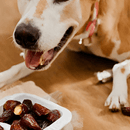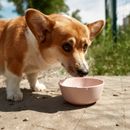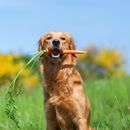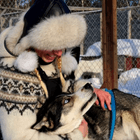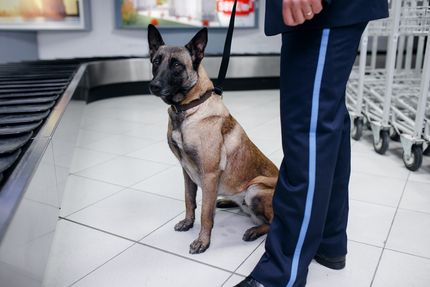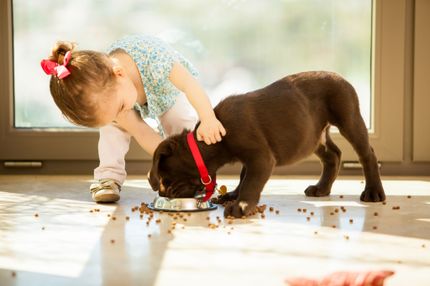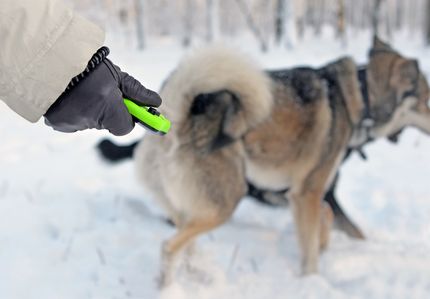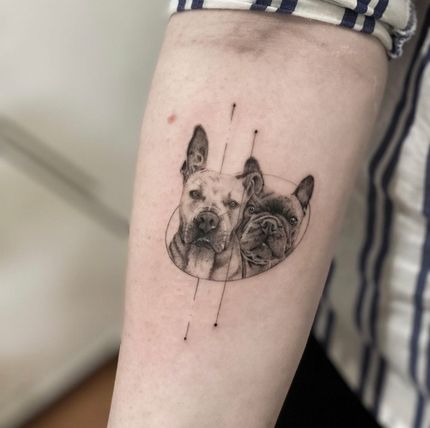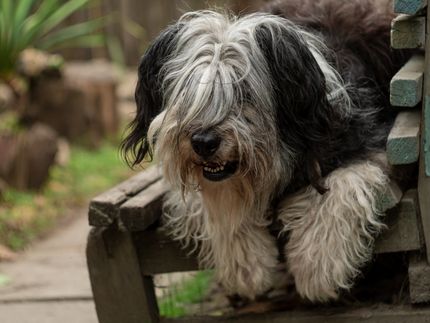Importance of attention: A hard stomach in a dog should never be ignored or underestimated.
Risk of stomach torsion
Potential danger to life: In severe cases, a life-threatening gastric torsion could be present, requiring immediate veterinary attention.
Signs of concern
Observation required: A distended and hard abdomen could indicate a gastric torsion. In addition, symptoms such as retching without vomiting, excessive panting, pale mucous membranes, lack of water intake and restless behavior should be noted.
Various causes of a hard tummy
Serious health sign: A hard tummy can have various serious causes that need to be differentiated.
- Stomach torsion
Danger to life: Gastric torsion causes a critical interruption of the blood supply to the digestive tract and can lead to circulatory arrest. - Intestinal obstruction
Blockages in the digestive tract: Intestinal obstruction can be caused by swallowed objects or poisoning. - Ascites
Accumulation of water in the abdomen: This is often a symptom of an underlying disease, such as liver disease or heart failure. - Peritonitis
Inflammation of the peritoneum: Inflammation of the peritoneum can be caused by bacteria and can lead to blood poisoning if left untreated. - Flatulence
Common problem in dogs: Excessive gas can lead to painful bloating, especially in dogs that gulp down their food quickly. - Internal bleeding
Result of accidents: A hard belly can also be caused by internal bleeding following an accident.

When is a visit to the vet necessary?
Recognizing the urgency: In the case of certain symptoms, such as a twisted stomach or an intestinal obstruction, an immediate visit to the vet is life-saving.
Immediate measures for a dog with a hard stomach
Provide warmth and comfort
Provide a comfortable place to rest: A soft, warm basket is soothing for dogs with a hard tummy. Additional warmth can be provided by a hot water bottle that is not too hot or an extra blanket.
Easily digestible food
Adapted feeding: Dogs with a hard tummy should be offered easily digestible food. Oatmeal, psyllium husk porridge or carrot soup are gentle on the digestive tract. These foods should be served lukewarm so as not to irritate the gastrointestinal tract.
Adequate fluid intake
Water and light broths: It is important that the dog continues to drink sufficient fluids. If necessary, the water can be made more palatable by adding a little chicken stock or a teaspoon of fruit juice to encourage the dog to drink.
Observation of behavior
Watch for changes in behavior: Continued observation of the dog is crucial to detect changes in behavior or condition. Particular attention should be paid to whether the dog is in pain, especially when the abdomen is touched.
Act immediately if the condition worsens
Immediate visit to the vet: If the dog shows no improvement or its condition worsens, a vet must be consulted immediately. If there are signs of a more serious illness such as gastric torsion or intestinal obstruction, rapid action is required.
These immediate measures are designed to stabilize the dog's condition and provide relief until professional veterinary treatment can be given.

Preventive measures against hard stomach and gastric torsion in dogs
Adaptation of feeding behavior
Encourage slower eating: The use of anti gulping bowls can help to slow down the dog's eating, reducing the risk of stomach problems. These bowls are designed in such a way that the dog is forced to eat more slowly and chew more carefully.
Dietary measures
Choosing the right food: High-quality food that is easily digestible and does not contain any flatulent ingredients is recommended. For dogs with sensitive stomachs, food with a high fat or calcium content should be avoided. Dry food can be moistened with water or broth to increase digestibility.
Controlled rest periods after eating
Avoid vigorous activity: Immediately after feeding, the dog should have a rest period to reduce the risk of gastric torsion. Romping, playing wildly or rolling around after eating should be avoided.
Regular health monitoring
Physical examination of the dog: Regular palpation of the dog and observation for behavioral or physical changes can help detect problems early.
Avoidance of risk factors
Beware of certain breeds and behaviors: Large dog breeds and dogs that tend to gulp down their food very quickly are particularly prone to gastric torsion. Special precautions should be taken with these dogs.
These preventative measures can help to reduce the risk of a hard tummy and more serious conditions such as gastric torsion, supporting the dog's long-term health and well-being.




